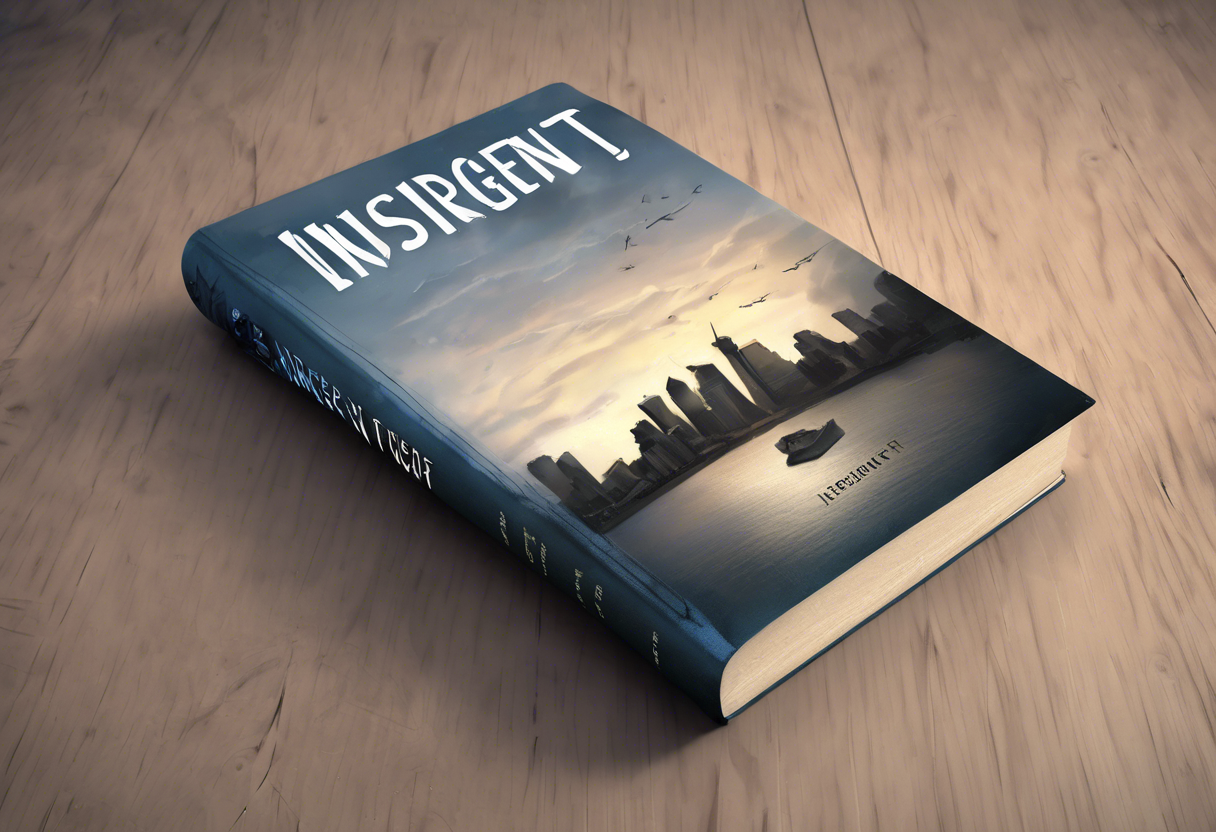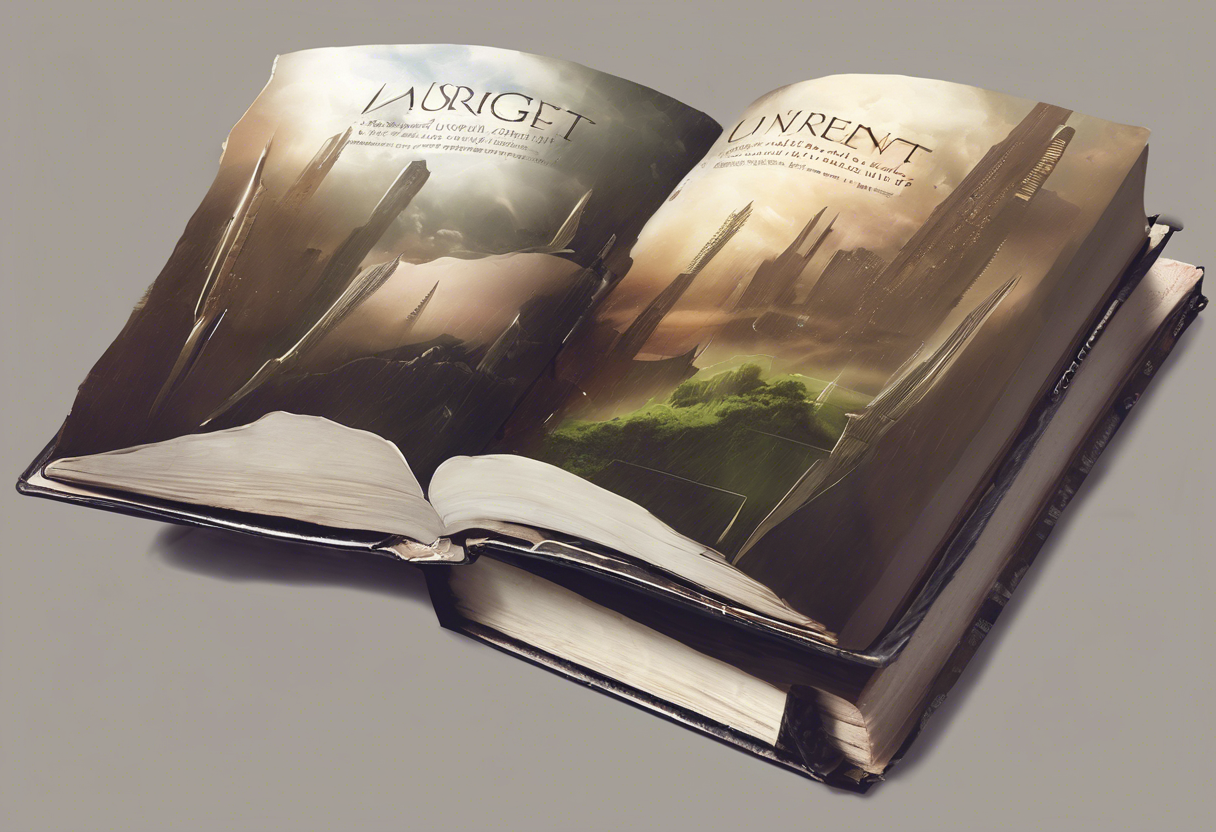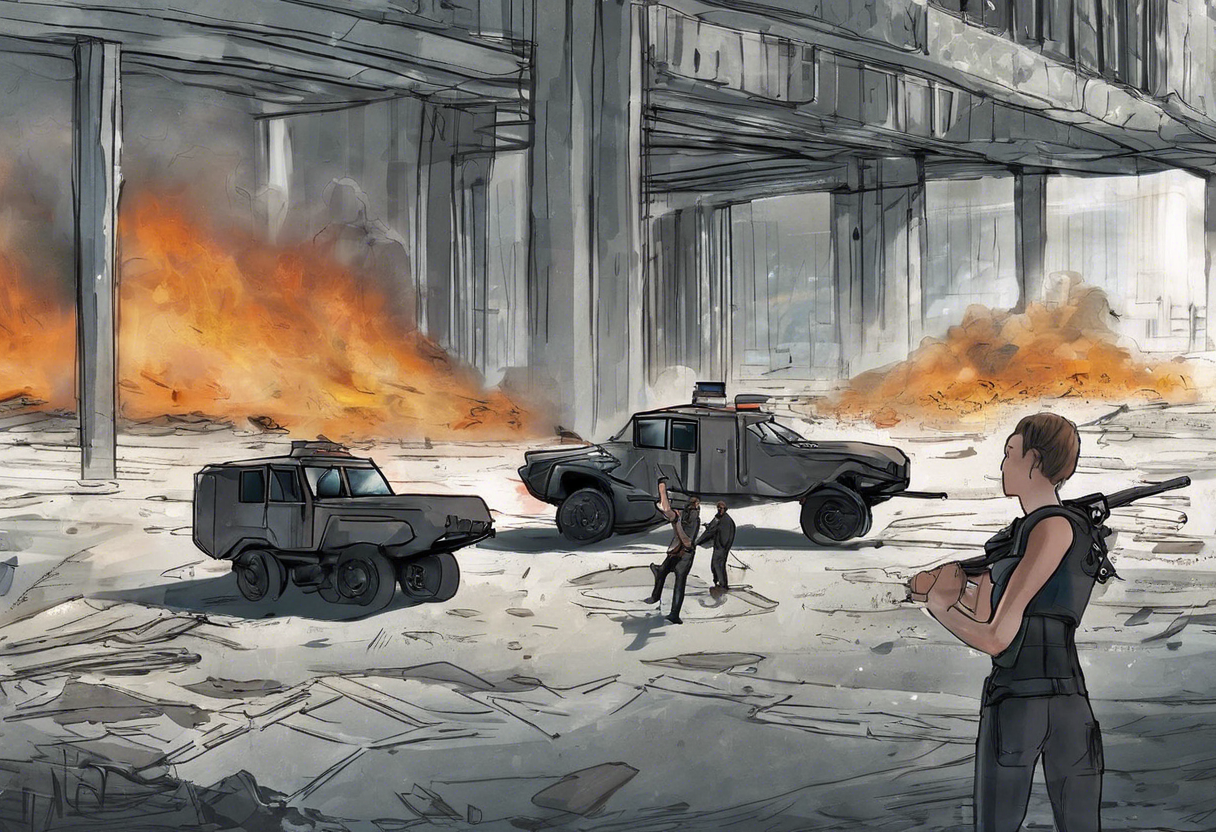Contents
Introduction
Overview and Background
Insurgent, the second installment in the Divergent trilogy, is a young adult science fiction novel written by Veronica Roth. Published in 2012, it follows the critically acclaimed first book, Divergent, which was released in 2011. The series is set in a post-apocalyptic, dystopian version of Chicago, where society is divided into five factions, each representing a different virtue: Abnegation, Amity, Candor, Dauntless, and Erudite.
Veronica Roth, the author, is the sole key creative figure behind the novel. Her work in the Divergent series has been praised for its unique blend of action, romance, and social commentary. Unlike authors such as C.S. Lewis, Ursula K. Le Guin, or Philip Pullman, who are known for their fantasy and philosophical themes, Roth’s focus is on a dystopian future that explores human nature and societal structures.
Production History and Initial Release
Insurgent was published by Katherine Tegen Books, an imprint of HarperCollins Publishers, on May 1, 2012. The book quickly gained popularity, building on the success of its predecessor and solidifying the Divergent series as a major force in young adult literature.
What Sets It Apart
Insurgent stands out within its genre for its intense action sequences, complex characters, and deep exploration of themes such as loyalty, love, violence, and grief. The novel’s setting in a post-apocalyptic Chicago adds a unique layer of realism to the dystopian narrative, making it relatable and engaging for readers. The series’ focus on a strong female protagonist, Tris Prior, also resonates with audiences looking for empowered female characters in young adult fiction.
Plot Summary
Main Storyline
The story of Insurgent picks up where Divergent left off, with Tris Prior and her allies on the run from the Erudite faction, which has taken control of the Dauntless faction using mind control serums. The Erudite, led by Jeanine Matthews, are using the controlled Dauntless to attack and slaughter members of the Abnegation faction, leading to an all-out war between the factions[3][5].
Tris, along with her brother Caleb, Tobias (also known as Four), Peter, and Marcus, seeks refuge among the Amity and later the Candor factions. The group’s primary goal is to uncover the secret information stolen from Abnegation, which could explain the real cause of the Erudite’s attack. Along the way, Tris and Tobias form an alliance with the Factionless, led by Tobias’s mother, Evelyn, to defeat the Erudite[3].
Key Events and Characters
A pivotal moment in the novel occurs when Tris and her group infiltrate the Erudite headquarters to access Jeanine’s laboratory. Tris faces simulations designed to test her Divergence and eventually confronts Jeanine, who is killed by Tori Wu. However, before her death, Jeanine brands Tris a traitor, leading to Tris’s capture along with other Insurgents. Despite this, Tris manages to pass crucial information to Tobias, which he shares through the computers, revealing a secret video narrated by Edith Prior. This video explains that the city was sealed to allow Divergents to increase and that Amity was supposed to open the fence to allow the population to re-enter the world[1][3].
Settings and Major Conflicts
The novel is set in a post-apocalyptic Chicago, where the faction system is on the brink of collapse. The main conflict revolves around the war between the factions and the ideological differences that drive their actions. Tris’s personal conflicts include her loyalty to her friends and family, her love for Tobias, and her struggle with grief and guilt over past events[3][5].
Themes and Symbolism
Central Themes
Insurgent delves into several central themes that are crucial to its narrative and resonance with audiences. One of the primary themes is the exploration of loyalty and betrayal. Tris’s relationships with Tobias, her friends, and her family are constantly tested as she navigates the complexities of war and faction politics[3].
Another significant theme is the impact of violence and grief. Tris’s experiences in the war and her personal losses shape her character and influence her decisions throughout the novel. The novel also explores the theme of love, particularly the romantic relationship between Tris and Tobias, which is fraught with challenges and uncertainties[5].
Symbolic Elements
The faction system itself is a symbolic element, representing different virtues and societal structures. The Erudite’s pursuit of knowledge and control symbolizes the dangers of unchecked power and the manipulation of information. The Dauntless, with their bravery and willingness to risk, symbolize the importance of courage and selflessness[3].
The character of Tris Prior is also symbolic, representing the idea of a strong, independent individual who challenges the status quo. Her Divergence, or her ability to fit into multiple factions, symbolizes the complexity and diversity of human nature[1][3].
Cultural Impact
Reception and Influence
Upon its release, Insurgent received widespread acclaim and quickly became a bestseller. The book’s success contributed to the growing popularity of the young adult dystopian genre, influencing other authors and series. The Divergent series, including Insurgent, has been praised for its strong female protagonist and its exploration of complex social issues[2][4].
Adaptations and References
The Divergent series, including Insurgent, was adapted into a film series. The movie adaptation of Insurgent was released in 2015 and starred Shailene Woodley as Tris Prior and Theo James as Tobias. While the film received mixed reviews, it helped to further popularize the series and its themes[4].
Critical Reception
Initial Reception
At the time of its release, Insurgent was praised by critics for its engaging storyline, well-developed characters, and the depth of its themes. Reviewers noted the novel’s ability to balance action, romance, and social commentary, making it a compelling read for a wide range of audiences[5].
Subsequent Years and Controversies
In subsequent years, the novel has continued to receive positive reviews, with many praising its contribution to the young adult genre. However, some critics have noted that the series, including Insurgent, relies heavily on familiar dystopian tropes and that the character development could be more nuanced in some areas[5].
Legacy
Enduring Relevance
Insurgent continues to be a significant work in the young adult dystopian genre, inspiring writers, publishers, and readers alike. Its exploration of complex themes such as loyalty, love, and the impact of violence has made it a staple in many readers’ libraries. The novel’s strong female protagonist and its unique setting have also influenced other works in the genre[2][4].
The Divergent series, including Insurgent, has left a lasting impact on popular culture, contributing to the popularity of dystopian fiction and the demand for strong, empowered female characters in literature and film.







